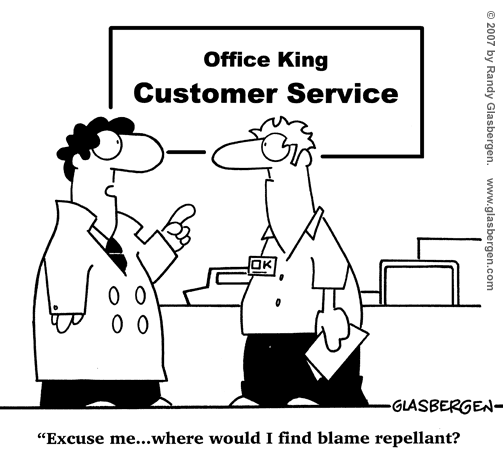“I am not here to play these ugly office politics games. I will do my work, and let my work speak for itself”
- Every fresher ever
“You can’t let your work speak for you; work doesn’t speak”
- Carla Harris, Vice Chairman at Morgan Stanley
Office politics. We hate it. We complain about it and are very well a part of it. But what if it is exactly this politics that gets work done? Let us get into politics head on. Understand office politics, the myths surrounding it, and the broad archetypes – of organizations and employees with respect to politics.
Acceptance: Politics is not negative
Imagine an ideal organization, which runs entirely on rules it has laid down – nothing would ever get done. There are always conflicting interests, and there are always clashes. Political behaviour is knowing how to advance your cause. Advancing causes for the wrong reasons, falls in the domain of ethics. We are here to talk about the former.
Political behaviour at its core is just the range of informal, unofficial, and sometimes behind-the-scenes efforts that happen in all organizations as people position themselves, their interests, their teams, and their priorities to get things done.
For example, let’s say you have a big meeting coming up where stakeholders at your company are going to decide which projects to invest in — including yours. If you’re savvy, you know that to get your project approved, you first need to understand the priorities and perspectives of those stakeholders. You need to engage with them beforehand and learn what they are looking for so that you can more persuasively present your idea.
Can you go the distance, handle the rough spots, inspire the troops, get the job done, and garner respect? Success at work consists of two factors: performance and relationships. Relationships can never fulfil the absence of performance, but given similar performance, the relationship currency is something that can take you far ahead. And managing these relationships is what gets us into the domain of politics.
Politics is a reality, and you can’t expect the lion not to eat you, because you are not eating him.
Lee G. Bolman and Terrence E. Deal’s research hits the nail on the head when it states, “the question is not whether organizations will have politics but rather what kind of politics they will have.” As human beings, we are social creatures and the use of relationships, informal influence, and power plays is part of how we engage — for better or for worse.
Building the Political Competence
Kathleen Kelley Reardon - an expert on organizational politics, in her HBR piece Office Politics Isn’t Something You Can Sit Out, talks about Political competence. She classifies political players into one of four types in her book. You might relate to one of these broad archetypes.
- The purist: Do you dislike all thought of politics, and simply want to get on with the job at hand?
- The street fighter: Do you believe the best way to get ahead is through the use of rough tactics, even at the expense of others?
- The Team Player: Do you believe in getting ahead by working well with others and participate in the politics that advance group goals?
- The Maneuverer: Do you believe in getting ahead by playing the games of politics in a way that is skillful and incomprehensible to those who only take things at face value?
None of these are wrong. These are preferences. But these are preferences you need to align to. Here is a workbook to help assess and create your political understanding or at least reflect upon it. Irrespective of your standing, political competence can be built. But it a serious job, with lots of effort.
With all the demands on your time and energy, it may feel like getting your unread emails down to double figures is the biggest achievement you’ve made all week. Now, addition, you need to find the time and energy to invest in relationships. Is it worth it? Well, it’s a choice that you must make.
The Organization
We discussed about your type, but do organizations have a type? Well, Dr. Kathleen has her researched view on that too. There are four, she says:
1. Minimally political companies what you see is largely what you get. Standards for promotions and expectations for managing and leading are made clear. There is a sense of camaraderie. Rules are occasionally bent and favors granted, but underhanded forms of politics are avoided.
2. Moderately political organizations also operate largely on widely understood, formally sanctioned rules. Political behavior, where it does exist, is low-key or deniable. This environment works for people who’d rather not engage in politics, but are capable of managing or living with pockets of political activity.
3. The highly political arena is where not understanding politics and being unwilling to engage in some of its more surreptitious forms can exact a price. Formally sanctioned rules are only invoked when convenient to those with power.
4. Pathologically political organizations. Daily interaction is fractious. Nearly every goal is achieved by going around people or formal procedures. People distrust each other — and for good reason. Out of necessity, people spend a good deal of time watching their backs and far less gets done than might otherwise be achieved.
The choice you had to make a while ago - What kind of political player you most relate to, is now helpful in ascertaining a match the type of arena in which you work, as well as your own personal style. Is there a good match?
I would have asked you to quit your job if your political climate and person type didn’t match – but we have EMIs to pay. So, I guess it wouldn’t hurt to learn about politics and to stretch your style to accommodate a variety of levels. Here are some baby steps to get you going (Again from Kathleen):
Break out of dysfunctional patterns, such as repeatedly taking on low visibility, low value projects to please someone; always having to be right rather than crediting others for their input; or failing to choose your battles instead of learning what matters most
Be less predictable, because predictability is the kiss of death in political organizations. For example, if you’re constantly attempting to prove yourself, but you lack guidance and a support network, you can leave yourself open to political foul play. The more predictable you are, the easier it is for others to manage you to their own advantage.
Try tweaking how and when you say things. For instance, if others expect you to be demure and let them steal your ideas at meetings, learn some ways of asserting yourself. For example, you could say: “I mentioned that option earlier. I’d like to expand upon it a bit more now.”
Political competence is a tool that helps you carve your path faster and better - and it is not optional.






